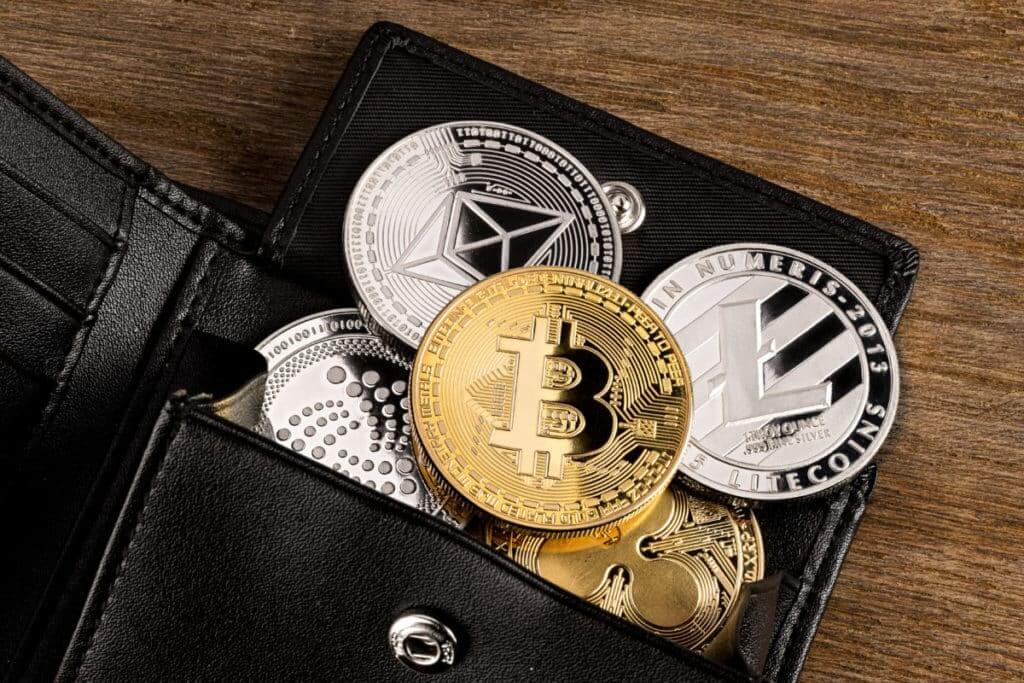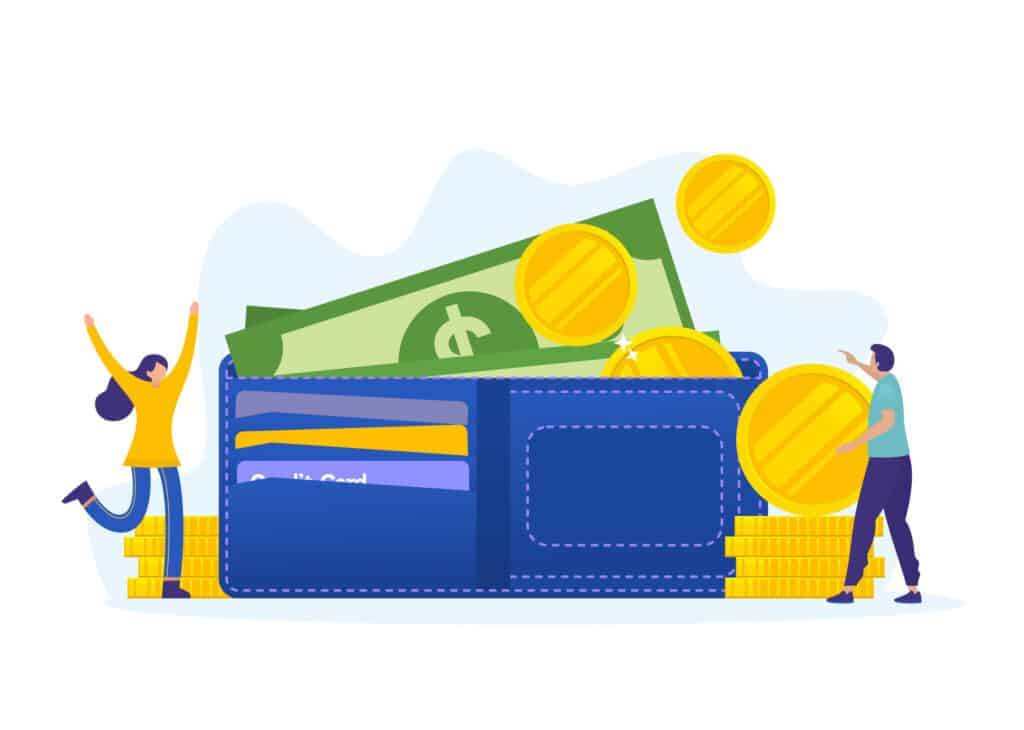
How Many Types of Crypto Wallets Are There?
It is hard to imagine the modern world without Bitcoin and cryptocurrencies in general. Crypto enthusiasts, investors, authorities, and others are interested in cryptocurrencies. People are ready to pay tens of thousands of dollars or even more for various cryptocurrencies.
What do you know about crypto wallets? People who aren’t familiar with cryptocurrencies might ask, “How many types of crypto wallets are there?” Let’s find out!
The main types of crypto wallets are hardware and software. Let’s not forget about paper wallets as well. Based on their work, crypto wallets can be further classified as cold or hot wallets.
It is very important to learn as much as possible about crypto wallets. Don’t worry; we are here to help you.
The purpose of this article is to help to learn more about the importance of crypto wallets.
It is important to remember that ownership of cryptocurrency isn’t the same as that of a fiat currency.
It is desirable to remember that crypto wallets never store the actual cryptocurrency. Importantly, crypto wallets guarantee the storage of private keys to the crypto assets.
What you need to know about types of crypto wallets
It is vital to gather more information about various types of crypto wallets.
For instance, when you buy Bitcoin or other cryptocurrencies from a crypto exchange, you can technically store the cryptocurrency where you purchased the cryptocurrency. So, if you buy small amounts of cryptocurrency, then you can find the cryptocurrency in your accounts originally, as in the case of an account balance.
As a reminder, crypto exchanges have insurance policies. Furthermore, funds are stored in the accounts with Federal Deposit Insurance Corporation (FDIC) insurance in most cases.
Nevertheless, the above-mentioned security measures are sometimes inadequate when it comes to minimizing risk factors. Let’s take a look at the most common types of crypto wallets.
What is the difference between hold and cold wallets?
People who aren’t familiar with crypto wallets might ask, “cold wallet vs. hot wallet, which one is better?”
Let’s start with hot wallets. To make a long story short, hot wallets are essentially the crypto wallets that are connected to the internet. However, they are less secure compared to cold wallets.
However, they also have one big advantage over cold wallets. Notably, they offer better accessibility thanks to their connection to the internet.
You need to remember that it is easier for hackers to gain access to hot wallets. However, they are more user-friendly than cold wallets.
What about cold wallets?

As we already discussed hot wallets, we can move on to cold wallets.
Cold wallets are essentially specific variations of crypto wallets that are designed for cold storage. Unlike hot wallets, cold wallets aren’t connected to the internet.
It is noteworthy that cold wallets serve as vaults that you can use for everyday transactions. However, we shouldn’t forget to mention that there are some types of cold wallets that are connected to the internet even while maintaining their basic working functionality.
Unsurprisingly, people who invested tens of thousands of dollars in cryptocurrencies prefer to use cold wallets. Nevertheless, a combination of both hot and cold wallets could present better value advantages for owners. So, some users might prefer to use both of them.
Now, we need to discuss one really important topic.
Types of hot wallets
You already have an answer to the question, “How many types of crypto wallets are there?” However, as stated above, it is vital to learn as much as possible about crypto wallets.
It makes sense to learn more about types of hot wallets.
In most cases, you would find all the software wallets in the hot crypto wallet types. When it comes to the most widespread types of hot wallets, we need to mention web wallets, mobile wallets, as well as desktop wallets.
Let’s start with desktop wallets. You need to download an application to your desktop or laptop. The above-mentioned application will assist in generating a data file for holding the keys of the users.
Users also must create a password to access the keys. This type of hot wallet offers the advantage of ownership of your key, although with the risk of physical damage or malware/virus infection.
Web and mobile wallets

What about web wallets? They are one of the main types of crypto wallets. You have the ability to access this type of wallet through a web browser. Notably, you don’t have to download specialized software or application.
With the assistance of browser access, they guarantee accessibility for crypto assets from any part of the world with your password, a device, as well as a web browser.
When it comes to web wallets, the website is the owner of the keys to your crypto assets. Nevertheless, alternatives offer a certain level of control to crypto owners over their crypto wallets.
What about mobile wallets? Let’s find out!
Without exaggeration, they play an important role. You must install a mobile application on your smartphone, which would serve as the hot wallet. Interestingly, mobile wallets offer better flexibility when it comes to exchanging funds. However, we shouldn’t forget about risk factors as well.
Types of cold wallets
Let’s continue our journey in the world of crypto wallets and discuss the types of cold wallets.
Let’s focus on the two popular variants of cold wallets: hardware wallets and paper wallets.
We can start with paper wallets. Paper wallets are quite interesting. All you need in order to create a paper wallet is paper and a pen or pencil.
Importantly, the paper must contain all the data you would require to access cryptocurrency. As you already know, cold wallets are more secure compared to hot wallets.
However, the situation is more complicated in the case of paper wallets than might appear at first glance.
For example, what happens when a user loses a paper wallet? You better not lose your paper wallet. Why?
In the event of losing the above-mentioned paper wallet, you have the risk of losing the crypto assets in the crypto wallet. As you can see, a paper wallet isn’t for everyone.
The situation is totally different when it comes to hardware wallets.
It is worth mentioning that hardware wallets offer security by entirely avoiding the online exposure of private keys. Importantly, they save private keys on a physical device that isn’t connected to the internet.
Furthermore, they are one of the most user-oriented crypto wallet types in cold wallets. Do you know why? You have the ability to connect hardware wallets to computers or any other device by using a USB drive.
For example, even if a computer is connected to the internet, the private key doesn’t leave the device.
Custodial and non-custodial wallets

Let’s start with custodial wallets. As a reminder, the vast majority of crypto wallets tend to be custodial wallets. Interestingly, custodial wallets are known for their convenience. Moreover, it is quite easy to use custodial wallets.
So, it isn’t surprising that inexperienced traders like them. Furthermore, custodial wallets are popular among experienced day traders.
Do you know what the main difference is between custodial wallets and the wallets mentioned earlier?
In the case of custodial wallets, crypto owners are no longer in full control of their tokens. Furthermore, the private keys required to sign for transactions are held only by the crypto exchange.
What about non-custodial wallets? When it comes to non-custodial wallets, owners have the opportunity to retain full control over their funds as a private key is stored locally with the crypto owner.
Custodial vs. non-custodial wallets: Which one should you select?
Both of them have different advantages and disadvantages that make custodial and non-custodial wallets suitable for different types of users.
For example, if you are prone to losing passwords as well as devices, then it is desirable to select a custodial wallet. As stated above, custodial wallets are popular among inexperienced traders.
Nevertheless, if you want to keep full control over your own funds, then it makes sense to choose a non-custodial wallet.
As stated earlier, it is vital to know the difference between various types of crypto wallets. So, you already know what to answer if someone asks, “how many types of crypto wallets are there?” Last but not least, don’t forget to read about crypto wallets.




